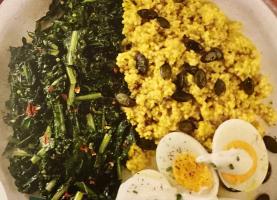Copy Link
Add to Bookmark
Report
Cider Digest #1903

Subject: Cider Digest #1903, 3 October 2014
From: cider-request@talisman.com
Cider Digest #1903 3 October 2014
Cider and Perry Discussion Forum
Contents:
Pressing Pears (Scott Jaeckel)
sulfiting parameters, and cider research (Dick Dunn)
NOTE: Digest appears whenever there is enough material to send one.
Send ONLY articles for the digest to cider@talisman.com.
Use cider-request@talisman.com for subscribe/unsubscribe/admin requests.
Archives of the Digest are available at www.talisman.com/cider#Archives
Digest Janitor: Dick Dunn
----------------------------------------------------------------------
Subject: Pressing Pears
From: Scott Jaeckel <spjaeckel@yahoo.com>
Date: Mon, 29 Sep 2014 20:12:59 +0000 (UTC)
I was wondering how many pears I would have to press to get a gallon of
juice from them? Also, this is the first time I am attempting Perry and
also was wondering what the best pears would be and any recommendations
for yeast and the actual production.
Scott Jaeckel
------------------------------
Subject: sulfiting parameters, and cider research
From: Dick Dunn <rcd@talisman.com>
Date: Fri, 3 Oct 2014 19:42:28 -0600
Over on the Cider Workshop, Andrew Lea recently commented on the common
guidelines for sulfiting--in essence, the pH effect, and really, how much
we need total to get the right active amount given typical(?!?) fruit:
"It is a pity in some ways that when it comes to SO2 additions we are
still working to UK data which was obtained the best part of 50 years
ago and that nobody has recently verified, certainly not outside the UK
AFAIK. It's not actually that difficult to measure gross SO2 binding
parameters from scratch but I bet nobody ever does!"
The matter of "binding parameters" has to do with how much sulfite is bound
up because of the composition (including cleanliness) of the fruit, thus
never becoming available to do anything useful.
Why don't we have any work on this in the US? (Or if we do, where is it?)
That's why I'm pulling a note from the (primarily UK) Cider Workshop to the
(primarily North American) Cider Digest. Andrew added in a note to me
"In the case of SO2 specifically, all the recommendations were worked
out for UK cider apples collected off the ground and then stored for
some time before pressing. Quite different from what most of your
people do."
It raises the question of whether North American cidermakers might be
over-sulfiting. Presumably any cidermaker with integrity and good sense
isn't going over the "safe" level of 200 ppm. But is our fruit enough
cleaner and less "aged" that we might use substantially less without risk?
There are several angles on this: Could we use less sulfite at the start
of fermentation (the microbial control use) and thereby have a reserve
under the safe total that can be used at finishing/bottling for stability
purposes? Could we reduce our total sulfiting well below the nominal safe
level? Is there more flexibility in the "rule" of staying at/below pH 3.8?
Well, we don't know, do we?!
I asked, in particular wrt the NA cider industries, "We're seeing so much
business growth; why aren't we seeing corresponding growth in science which
would support the industry?" Andrew noted the difference in attitudes on
this. My view is perhaps too naive, hoping that the view of "A rising tide
floats all boats" would prevail or at least have some currency. Andrew has
heard comments from large UK cidermakers that they are doing research which
they won't share because they consider it to be giving them a proprietary
advantage. The two views are not inconsistent, if you consider that the UK
cider industry is "mature", dare I say even a bit stagnant, whereas the NA
(US esp) cider industry is growing as fast as it can. If more knowledge
helped everyone make better cider, our whole picture would improve.
- --
Dick Dunn rcd@talisman.com Hygiene, Colorado USA
------------------------------
End of Cider Digest #1903
*************************
























